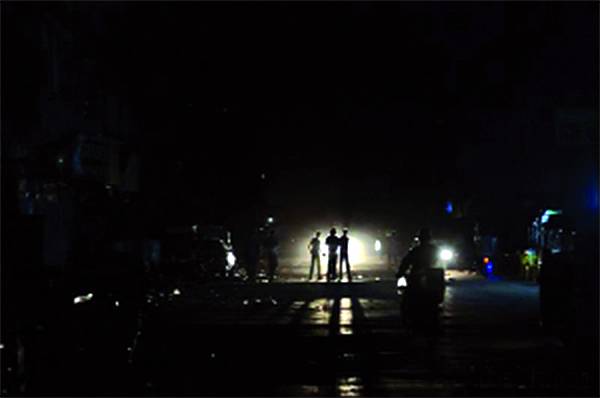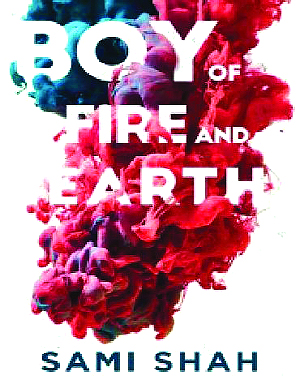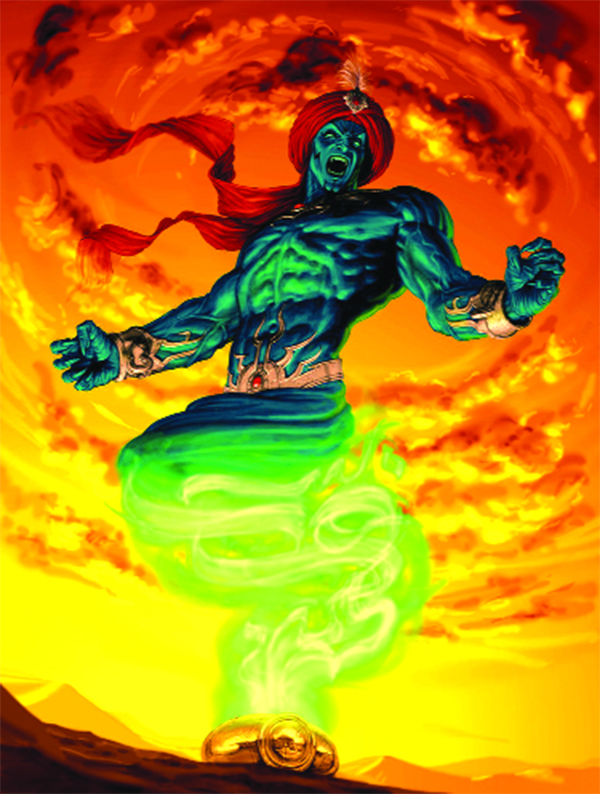

Pages: 360
Published June 2017
When Wahid, the titular protagonist of Sami Shah’s rollicking horror-fantasy novel Boy of Fire and Earth, complains that the fantastical creatures he is encountering are not of the dragons, orcs and wizards variety, of which he is intimately familiar because of his love for Western fantasy novels and the Dungeons and Dragons game he plays with his friends, Iblis – the Devil himself, who happens to be Wahid’s travel companion – quips, “Your complaint is that you cannot deal with the creatures you have met? But why not? They are of your own people, are they not? Dragons and orcs and such are of foreign lands…djinns, chudails, even me – we are all things that you are supposed to believe in.” It’s a fair point that the Devil is raising: one that will resonate with a certain type of Pakistani youth that grew up hearing urban legends of chudails with their feet turned the other way and folklore of djinn that live in trees and fall in love with girls with long hair, but who associate fantasy as a genre solely with Western narratives such as Lord of the Rings and Harry Potter. Despite the fact that there is a strong tradition of fantasy narratives in South Asia (after all, the world’s first and longest magical fantasy epic is Urdu’s Tilism-e-Hoshruba), there is a disconnect between these two kinds of fantastical stories – one associated with horror stories you would swap with friends in the dead of night, and the other with the stories found in the pages of a traditional Western fantasy novel. Sami Shah, in his novel of a half-djinn, half-human teenage boy suddenly drawn into the supernatural underbelly of Karachi (and beyond), bridges this disconnect with aplomb. He brings in creatures of all shades and sizes, steeped in South Asian tales and Muslim folklore, in a Chosen One tale common to many Western fantasy narratives.
Wahid is a regular teenager growing up in Karachi, living a comfortable, sheltered life – worrying about his A-levels exams, playing video games and reading comic books with his friends Hamza and Arif, and trying to build up the nerve to talk to Maheen, the cute girl in his Physics tuition classes. Then, abruptly, a deadly car crash after returning from a party turns Wahid’s life upside down: his friend is dead, the girl he has a crush on is in a coma and vengeful djinns suddenly seem to be bent on killing him. Setting off on a quest to recover Maheen’s soul, which has been taken by the djinns, and trying to find the truth behind his own origins, Wahid stumbles upon a supernatural world existing in Karachi, under his very nose, and from there to another world altogether. In his search for answers, Wahid comes across all manners of terrifying beings, both mythic (Pichal Pairees that haunt the beaches of Hawkes Bay, djinns that frequent a mithai shop at Sindhi Muslim, the aforementioned snarky Iblis who takes Wahid to Kaf, the world of djinn which is inhabited by, among others, the Yajuj-Majuj and the ghost of Alexander the Great) and human (a spunky feral street child known as the Badshah, the King of Karachi, a sadistic assassin that frequents a mosque after every kill, a Physics professor at Karachi University with a strange fascination with djinns).

The biggest strength of the novel is the rich, fascinating world that Shah has created, deftly heightening Karachi’s bustle and darkness by intertwining it with supernatural forms of sinister threats. The demons – both human and un-human – that Shah brings to life feel right at home in the sprawling chaos of Karachi, from the ragged splendour of Abdullah Shah Ghazi’s Mazaar to the twisty, cramped streets of Tariq Road. Looking at Karachi through a horror/urban fantasy lens is a particularly effective choice; the gore and surrealism of the genre fits the manic and absurd energy of the city like a glove. It feels both ludicrous and strangely plausible that the security establishment’s obsession with foreign enemies would lead them to have diplomatic relations with the world of djinn, or that Dajjal’s minions would be behind the 2011 attack on a naval base. When, in the latter half of the novel, the action moves to Kaf, another world altogether which is no less rich or fascinating, the reader might nevertheless miss the demon-infested Karachi that Wahid left behind.
Looking at Karachi through a horror/urban fantasy lens is a particularly effective choice; the gore and surrealism of the genre fits the manic and absurd energy of the city like a glove
The compelling world-building of the novel makes its other shortcomings more palatable – the narrative could use a little tightening (many events seem largely episodic instead of tied together cohesively), the characters could use more fleshing out (the villains are squarely in the camp of pure evil, with little nuance to their motivations) and Shah has a tendency to lean a little too heavily on the blood and gore (the multiple, drawn-out torture scenes get off-putting and repetitive after a while). Moreover, the masculine world that Shah has created has very little room for dynamic female characters; Maheen is nothing more than the prize that Wahid is aiming for at the end of his quest, with no personality or interiority of her own, and the few other female characters populating the narrative all fall, problematically, in the evil hag/innocent victim dichotomy. Still, the boldness of Shah’s imagination makes it easier to let these weaknesses slide. It also helps that the novel is infused with humour (“Wahid wondered why there were suddenly so many kings in his life. Did the supernatural worlds not have democratically elected governments, with presidents and prime ministers elected through a parliamentary system?”), and that it manages to touch upon, in interesting ways, issues of religious intolerance, growing fanaticism and the poverty and corruption that infests the streets of Karachi and beyond. Boy of Fire and Earth is a fun page-turner, and an exciting harbinger of a revival of local, South Asian fantasy that feels at once thrillingly fresh and satisfyingly familiar.

